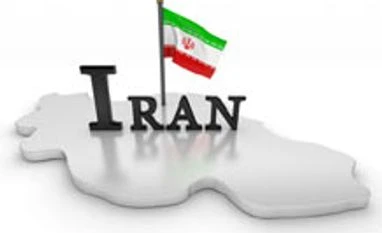Marathon Iran nuclear talks appeared to be stumbling today as foreign ministers grappled to resolve the last hurdles blocking a deal, amid warnings that years of negotiations may fail at the 11th hour.
Foreign ministers from the global powers leading the talks to rein in Iran's suspect nuclear programme huddled for the first time with the Iranian delegation during this 10-day stretch of talks in Vienna.
But even though it seems that the teams are really down to the last few sticking points aiming to end a 13-year standoff with Iran, a German diplomatic source sounded a cautious note.
"If there is no movement in decisive areas a failure is not ruled out."
The so-called P5+1 group -- Britain, China, France, Germany, Russia and the United States -- was due to hold a second plenary session with Iran on Monday evening.
After failing to make a June 30 deadline, global powers have given themselves until Tuesday to try to reach an accord putting a nuclear bomb out of Iran's reach.
But an Iranian official admitted Tuesday's date that was not sacrosanct.
He insisted his country had made "a number of concessions" but that a number of issues -- few in number but "tough" -- remained to be thrashed out at ministerial level.
"July 7, July 8, we do not consider these dates as those dates we have to finish our job," the official, who asked not to be named, told reporters.
"Even if we pass July 9, that will not be the end of the world, there will be another period for us to watch."
On Sunday, US Secretary of State John Kerry, in the Austrian capital since June 27 facing off against his Iranian counterpart Mohammad Javad Zarif, warned the talks still "could go either way".
The point was rammed home by France's Foreign Minister Laurent Fabius, Germany's Frank-Walter Steinmeier and EU foreign policy chief Federica Mogherini as they returned to Vienna late Sunday.
"The main question is to know whether the Iranians will accept making clear commitments on what until now has not been clarified," Fabius said, adding that "all the cards" were "now on the table".
Kerry is under pressure to nail down the deal by Thursday in order to send it to the Republican-controlled US Congress for a 30-day review. Under a new law, if the deal is reached after July 9 US lawmakers will have 60 days to vote on it.
The P5+1 powers want Iran to sharply curb its nuclear programme to make any push to acquire the atomic bomb all but impossible, in return for sanctions relief.
Iran denies wanting nuclear weapons, saying its activities are purely for peaceful purposes.
Foreign ministers from the global powers leading the talks to rein in Iran's suspect nuclear programme huddled for the first time with the Iranian delegation during this 10-day stretch of talks in Vienna.
But even though it seems that the teams are really down to the last few sticking points aiming to end a 13-year standoff with Iran, a German diplomatic source sounded a cautious note.
More From This Section
"We are not there yet... We should not underestimate that important questions remain unresolved. There will not be an agreement at any price," the source said.
"If there is no movement in decisive areas a failure is not ruled out."
The so-called P5+1 group -- Britain, China, France, Germany, Russia and the United States -- was due to hold a second plenary session with Iran on Monday evening.
After failing to make a June 30 deadline, global powers have given themselves until Tuesday to try to reach an accord putting a nuclear bomb out of Iran's reach.
But an Iranian official admitted Tuesday's date that was not sacrosanct.
He insisted his country had made "a number of concessions" but that a number of issues -- few in number but "tough" -- remained to be thrashed out at ministerial level.
"July 7, July 8, we do not consider these dates as those dates we have to finish our job," the official, who asked not to be named, told reporters.
"Even if we pass July 9, that will not be the end of the world, there will be another period for us to watch."
On Sunday, US Secretary of State John Kerry, in the Austrian capital since June 27 facing off against his Iranian counterpart Mohammad Javad Zarif, warned the talks still "could go either way".
The point was rammed home by France's Foreign Minister Laurent Fabius, Germany's Frank-Walter Steinmeier and EU foreign policy chief Federica Mogherini as they returned to Vienna late Sunday.
"The main question is to know whether the Iranians will accept making clear commitments on what until now has not been clarified," Fabius said, adding that "all the cards" were "now on the table".
Kerry is under pressure to nail down the deal by Thursday in order to send it to the Republican-controlled US Congress for a 30-day review. Under a new law, if the deal is reached after July 9 US lawmakers will have 60 days to vote on it.
The P5+1 powers want Iran to sharply curb its nuclear programme to make any push to acquire the atomic bomb all but impossible, in return for sanctions relief.
Iran denies wanting nuclear weapons, saying its activities are purely for peaceful purposes.
)